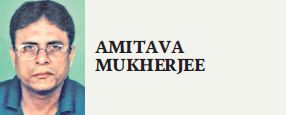Published: Published Date – 12:55 AM, Wed – 31 August 22

By Amitava Mukherjee
Hasina Wazed, the Prime Minister of Bangladeshis scheduled to come to India at a time when her country is exercising a ‘politics of balance’ in order to steer clear of an impression that Dhaka is willingly embracing a Chinese dragnet. Her country is running short of money and in order to overcome it, she has approached the International Monetary Fund (IMF) with a request for a $4.5 billion loan.
The choice carries meaning as China is ready to help Dhaka with bagfuls of hard currencies as was recently evident when Wang Yi, the Chinese foreign minister, had pleaded with her to accept Chinese loans for infrastructure projects but in vain. On the other hand, India has announced a $3-billion aid in addition to a $500-million line of credit. The last mentioned one is for imports of defence items from India.
Change in Approach
It is not difficult to guess why there has been a change in Bangladesh’s approach to regional geopolitics for, the same Hasina Wazed was not once shy of declaring her proclivity to tilt towards China as after a visit to the nation in 2014, the Bangladesh Prime Minister had said that she was prepared to forget the past and condone China’s support to Pakistan during the Bangladesh liberation war of 1971.
Sri Lanka’s fate must have taught her a lesson. She is now trying to do a course correction as like Sri LankaBangladesh has also taken up quite a few grandiose infrastructure projects whose end benefits are minimal. But Hasina’s knocking at the gate of the IMF, where Washington has a decisive say, instead of that of Beijing has some geostrategic connotations.
The election is approaching in Bangladesh and it has an influential section of the elite class, always looking to China for sustenance and inspiration, which can sway the voting pattern of a significant section of Bangladeshi voters. Cold shouldering various Chinese proposals will put a damper on the activities of this section of the elite. There is another reason also. Tension is rising in the Indian Ocean and the Asia-Pacific region between the America-led QUAD and China, and Dhaka is willing to steer clear of it.
Axing China
Observers will keenly watch Dhaka’s geostrategic moves. It has allowed China to invest heavily in the development of the Chittagong port but at the same time has offered India the right to use the port. Hasina has axed a Chinese proposal to build a Dhaka-Chittagong high-speed railway network. China has also been pushed out from the Chittagong metro railway project and instead Dhaka is now having parleys with South Korea.
But Bangladesh’s economic condition is wobbly. At this point, it has only $45 billion in hard currency reserves, which may suffice for imports for five months. Import bills are growing while exports are dwindling. In the first nine months of 2021-2022, the import bills of Bangladesh rose 44% compared with the same period of the previous year, costing the country’s exchequer $61 billion while exports grew at a much smaller pace – 33%. A large part of the import bill increase must be due to the push-up in the prices of petroleum products in the international market due to the Ukraine war. But here again, Bangladesh could not provide any perspective planning to limit the use of hydrocarbon products.
Although international financial institutions have predicted that Bangladesh’s gross domestic product (GDP) will grow at 6% this year, it may not reflect on the country’s overall financial health as Bangladesh is heavily debt-ridden, both internal and external. The country’s debt-GDP ratio is 20%, and in such a scenario it may not possible for Dhaka to raise the investment-GDP ratio above 30%.
Questions for India
These are the more important questions Indian policymakers should ponder over, not just the issue of sharing river waters. Bangladesh is part of China’s Belt and Road Initiative and it must not be forgotten that Beijing is in possession of enormous hard currency reserves. Everything will depend on whether Hasina Wazed can get her boat steadied in this turbulent water.
With 43% poverty-stricken people and inflation soaring as high as 6%, it will be a difficult task for the Bangladesh Prime Minister. Bangladesh will go to the polls early next year and if some positive results come out of Hasina Wazed’s forthcoming tour, then it will help the Awami League in the hustings. A solution to the Teesta water issue may not be possible. But there may be some positive outcomes favouring Bangladesh over the issue of sharing waters of other transboundary rivers. Another thorny issue – sharing of the Ganges water will perhaps come to the table of negotiation. The existing agreement in this respect will expire in 2026.

(The author is a senior journalist and commentator. He can be contacted at amitavamukherjee253@gmail.com)
